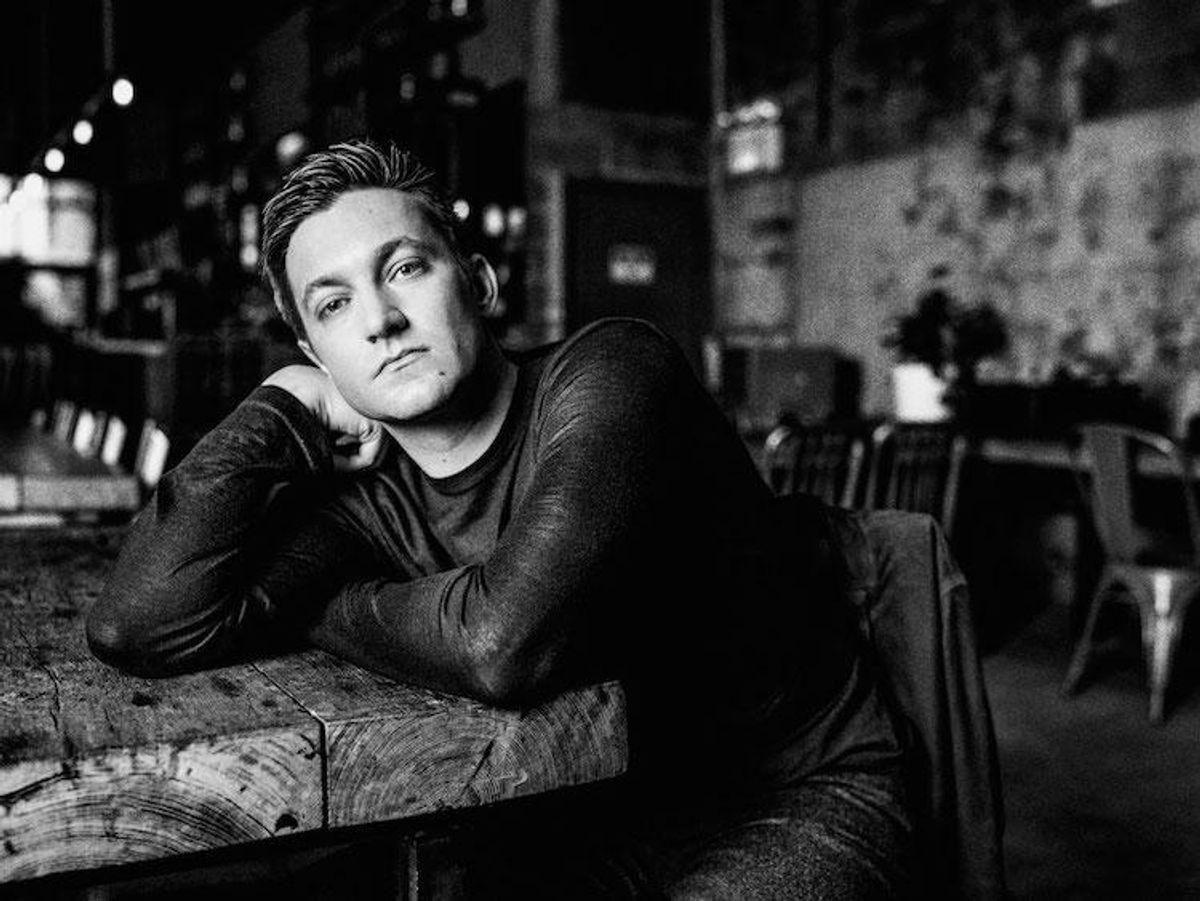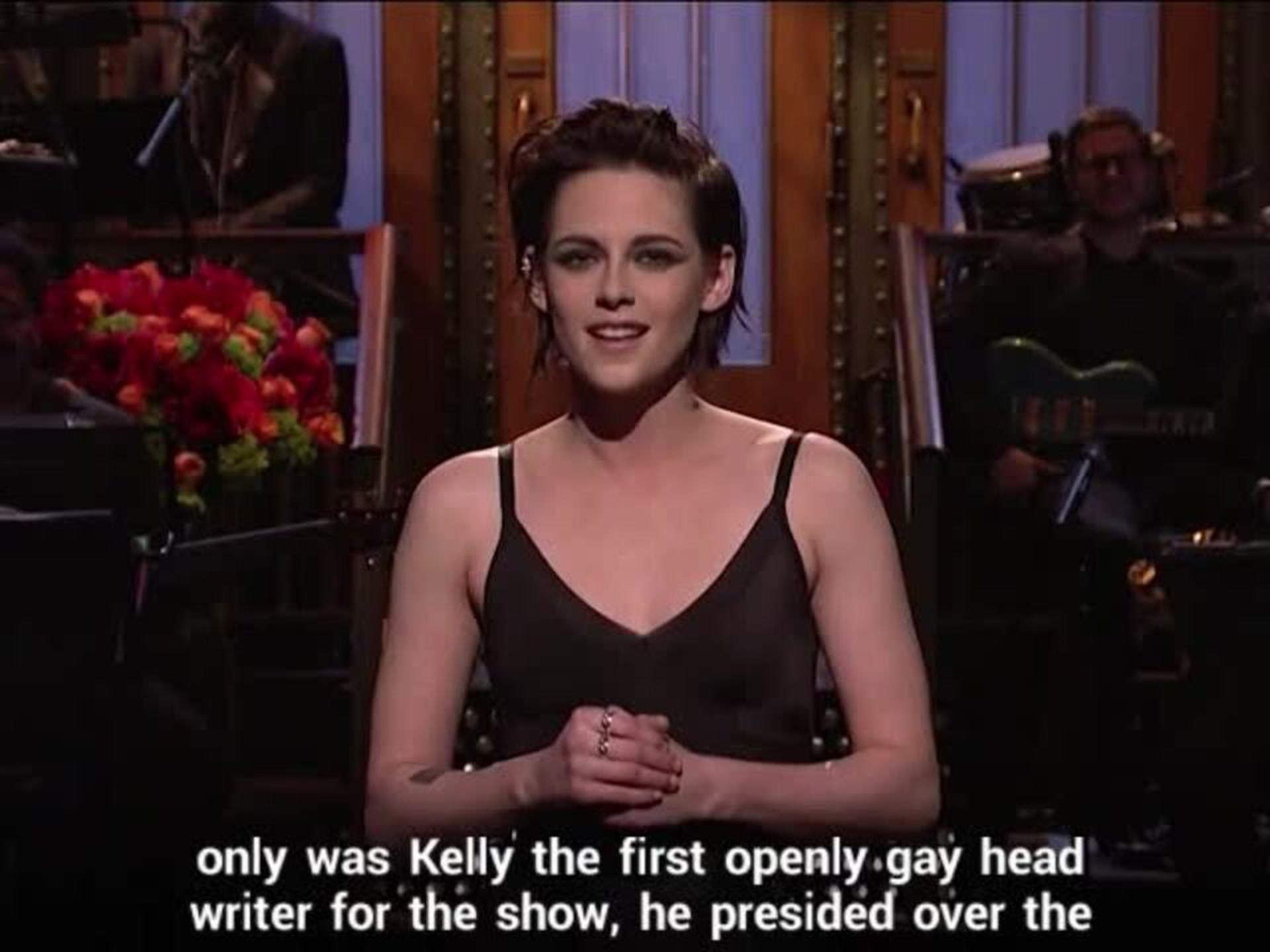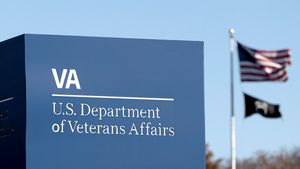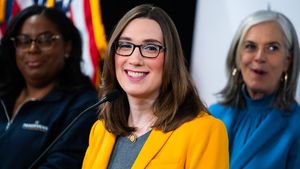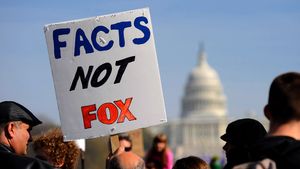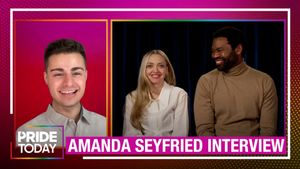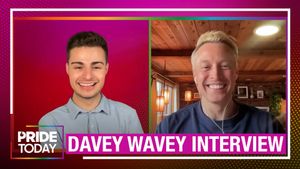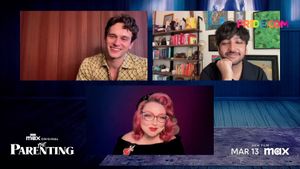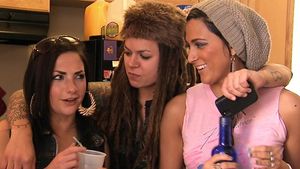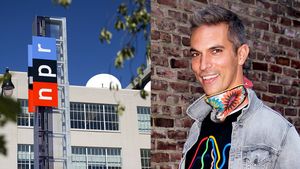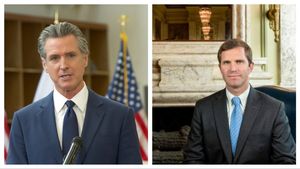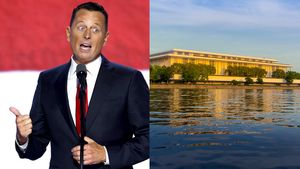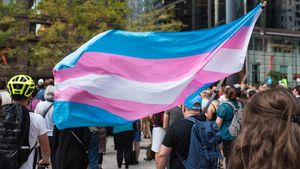"In equal parts, I never envisioned it, and envisioned it so hard my nose would bleed," says Chris Kelly of scaling the Matterhorn of comedy to become a head writer of Saturday Night Live, where he recently wrapped his first season. "When you're little, you're like, 'I want to write for SNL,' but in a fake way, like you'd never actually do it."
He ultimately did it one better: Not only was Kelly the first openly gay head writer for the show, he presided over the most-watched season of it in 23 years, thanks to slam-dunks like Alec Baldwin's Trump-baiting commander in chief and Melissa McCarthy's apoplectic Sean Spicer, an instant classic. There were also the Oval Office meetings with Steve Bannon depicted as the wordless Grim Reaper; Kellyanne Conway singing and dancing to the musical number "Conway," a riff on "Roxie" from Chicago; and a tongue-in-cheek commercial for Complicit, the latest fragrance from
Ivanka Trump.
The bounty of political snafus since last November would be catnip to any team of satirists, but for Kelly, it was as much a curse as a blessing. "Actually, I don't see it as a gift," he says. "I would easily have given up all of those great sketches for him to not be president. But we did the best we could."
Indeed, SNL's 42nd season was studded with sublime moments that rank among the finest things it has ever done, including the unusually somber post-election cold open with Kate McKinnon as Hillary Clinton, sitting at a piano and plaintively singing Leonard Cohen's "Hallelujah," its lyrics dovetailing with her and the nation's mourning; and "Black Jeopardy," in which a deplorable white guy named Doug (Tom Hanks) competes on an African-American quiz show and discovers he and the other contestants share each other's fears and prejudices. The Hanks episode also produced the inexplicable haunted-house character David S. Pumpkins, which wasn't as viral as "Dick in a Box," but close.
Related | Hide in the Bushes & Mourn Sean Spicer's Resignation With These Classic SNL Skits
And then, of course, Spicer. "It was really fun to watch Melissa come out and the audience not understand who it was for a little bit," Kelly recalls. "Then as she talked, people were like, 'Oh!' You don't always know what is gonna be a hit or what isn't, but that felt like one of those undeniable moments--like, I'm always going to remember seeing this happen live."
Kelly grew up in Sacramento, Calif., in a conservative religious family. "I'm sure in comparison to a lot of gay people, I had a pretty OK go of it," he says, "but I knew it wasn't gonna be their favorite thing about me right away."
He came out in college but skirted bullying in high school with his sense of humor. "Early on, I staked my claim as the funny one, hoping people would be like, 'He's the funny one,' and not 'the gay one,' " Kelly says. "But I wasn't, like, hiding in the bathroom at lunch."
Saturday Night Live quickly became an obsession. "I would leave high school dances early for it," he says. "If a dance ended at midnight, I was like, 'Why is this going till midnight? Don't we all want to get back for 11:30?' Also, I was gay, so the dances were not for me, so I was like, 'Yeah, SNL is why I want to leave, girlfriend-I-brought-to-this-fucking-dance.' "
Kelly goes so far as to declare the show his defining characteristic at the time. "Other people had interests, and I was just 'watches SNL and Seinfeld,' " he says. "But that's all the personality you need when you're 15, right?"
After he finished studying drama at UC Irvine ("I really wanted to go to NYU because of Felicity, but we couldn't afford it"), Kelly moved to New York and joined the SNL incubator Upright Citizens Brigade. He worked for the Onion News Network and applied to the show twice, but was rejected, so he relocated to Los Angeles to work at Funny or Die. While there, he applied to SNL again. This time he was promptly hired (Seth Meyers liked one of his videos), so he moved back.

Photo by Benedict Evans. Styling by Michael Cook.
"Your first year you have such high highs, and such low lows," Kelly says of joining the team in 2011. "It is a lot about just surviving, being normal and not having a meltdown in front of people and not sobbing. I don't know how I survived it." His sexual orientation, however, was a non-issue. "I wasn't the only gay writer when I was hired," he says. "There are plenty of other gay people on the show."
Including Kate McKinnon, whose arrival coincided with Kelly's and Aidy Bryant's. Kelly started writing regularly for the performers, hatching the police-drama parody Dyke & Fats and the viral music video "Twin Bed." The sketches led to Kelly being offered the co-head writer gig in the summer of 2016, along with his writing partner Sarah Schneider.
He says his panic attacks have gotten infinitely better. "But there is still that Monday or Tuesday feeling, even five or six years in, of, Will I have an idea this week? What if I just can't think of something? You always think that's gonna be the week that everyone realizes you're a fraud."
Of the countless sketch ideas he's pitched that he's seen come to fruition, does Kelly have any regrets? "I wish our skewering of Trump earlier on had helped him not win," Kelly says. "I mean, we were right at the time, because the vibe during those debates was that he was such a train wreck and was sinking himself, and that Hillary was gonna win. So we weren't wrong in matching the vibe of the country. But then, watching some of those debate jokes [in which we implied] he's obviously gonna lose... Ugh."
While he was killing it at SNL, a small indie movie he wrote, directed, and shot two summers before was taking off at festivals and in theaters, ultimately becoming one of the best-reviewed films of 2016. Its genesis came three years before he joined SNL. At 26, Kelly had gone through a hellacious breakup and his mother had developed terminal cancer, so he returned home to Sacramento for the last year of her life. That became the premise for Other People, his pitch-black comedy, which starred Jesse Plemons (Fargo season two) as Kelly and Molly Shannon as his mother.
Related | Jesse Plemons on Playing Gay, Working With Molly Shannon, & Being the Ultimate Actor-Chameleon
The film is a stunningly assured debut. Nearly every scene is note-perfect, eschewing cancer-movie tropes, gay tropes, and just about every other trope along the way, while tackling the alienation Kelly felt from being raised by hidebound parents, the horrors of dating, and the importance of platonic gay friendship.
"It could have been such a melodrama," Kelly says. "I wanted everything presented very matter-of-factly. I wanted dramatic scenes to end on a comedic note, and I wanted comedic notes to be undercut by a dramatic note. So I knew what I wanted the tone to be, and how I wanted it to look, and I think that helped keep it afloat."
It's rare for a chief SNL writer to simultaneously break out in film, a feat that has yielded other opportunities for Kelly. He is writing his second film, and he and Schneider just sold a pilot, to be produced by Lorne Michaels's production company, that they are filming this summer.

Photo by Benedict Evans. Styling by Michael Cook.
Which means that Kelly may not return for another season of SNL. In May, he moved back to L.A. to join his boyfriend, an attorney he's been dating for six years. Kelly says this won't affect his participation on the show, given that he's been bicoastal for a few years, flying out to the West Coast when it's on hiatus. Still, his coyness gives the impression that he hasn't yet made up his mind.
Guiding Saturday Night Live to platinum ratings only to then leave it behind would be a radical move. But in the current climate, maybe one year at the top was enough.
"This season was so crazy," Kelly says. "It's hard to articulate it, or to know how you feel, or to even appreciate it truly while you're in it. But I feel like at the end of the summer--or maybe even five years from now or 10 years from now--I'll have a better perspective on how lucky I was to be here for this."
